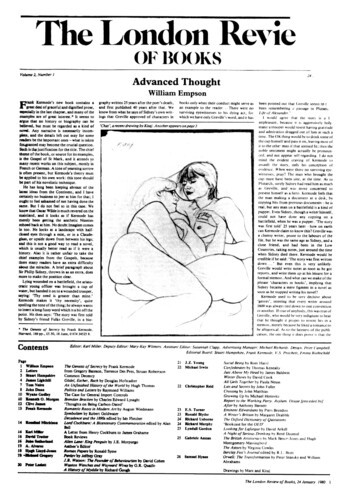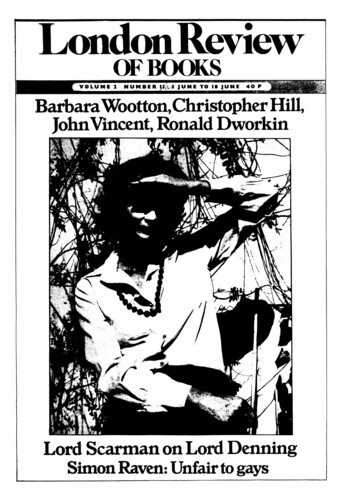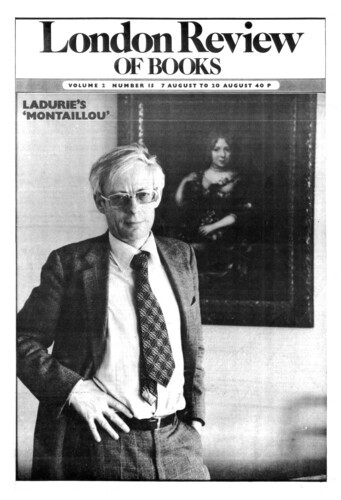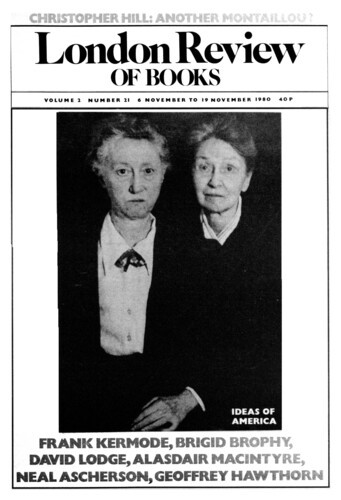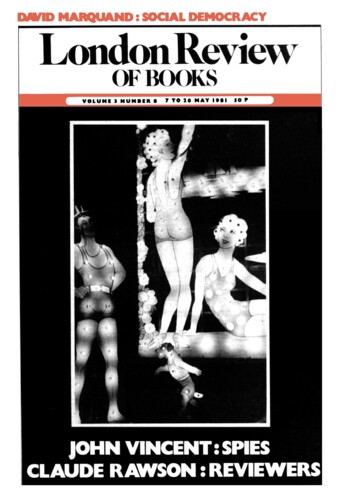Sheep into Goats
Gabriele Annan, 24 January 1980
Both authors of The British Aristocracy have been connected with Burke’s Peerage. One doesn’t expect genealogists to be particularly indulgent: their job, after all, is to separate the sheep from the goats. But these two are soft-hearted and broadminded to a fault, or so social historians, as well as some of their subjects, might think. They draw the demarcation-line between the aristocracy and the rest to take in almost the whole middle class except ‘the rag trade, showbiz and property dealing’. They contend (and under the guise of merely purveying scholarly information spiked with quaint anecdotes, this is quite a contentious book, almost a tract) that the term ‘middle class’ has become over-extended: ‘It is understandable that the aristocracy should be called middle-class by its enemies – after all, middle-class is a variant of the Marxist “bourgeoisie” – but there is something particularly absurd about aristocrats speaking of themselves as middle-class, as they frequently do these days.’ So Bence-Jones and Montgomery-Massingberd take the word ‘gentleman’ and make it mean ‘aristocratic’: their definitions define not so much what is as what they think ought to be.
